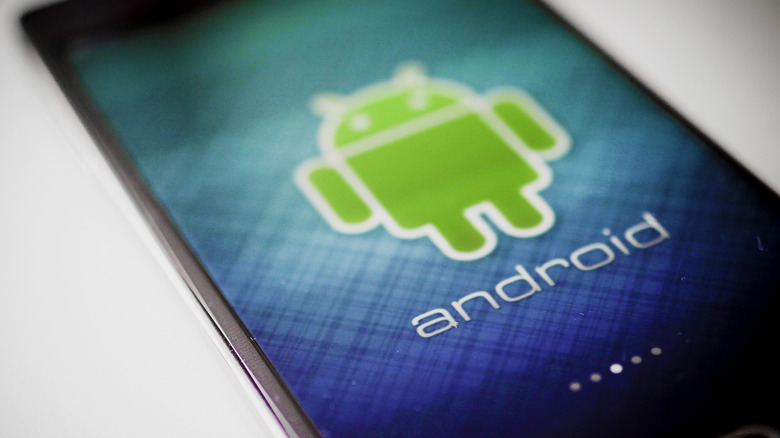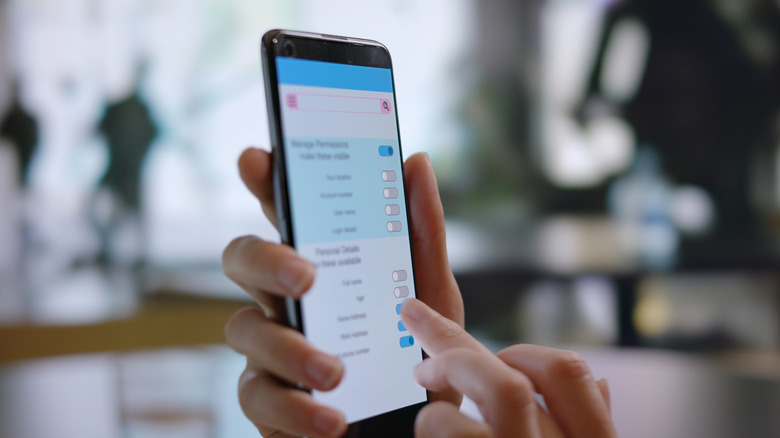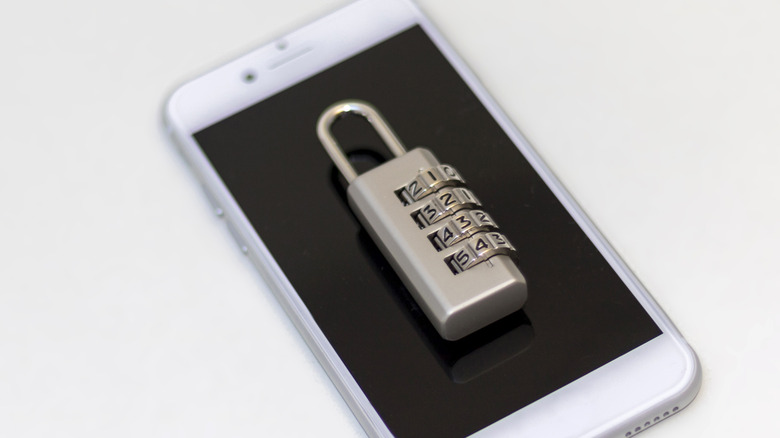Rooting Your Android Device: Pros And Cons
Android devices are full of capabilities, but some options may be locked off for safety and security reasons. Android is built with resiliency in mind, so you can't exactly do whatever you want with your phone. Android is a bit more open than iOS, allowing you to sideload apps or make customizations to aesthetics, but you still don't have complete freedom.
That can change if you take the time to "root" your Android device, that is. Android is based on Linux, which limits user access to important parts of the operating system (OS) by design. You can still access those parts by logging in as an administrator account, sometimes referred to as superuser or "root," which has full access to the entire OS. It's something you have to choose to do, knowing the risks it can entail. It's generally advised not to stay logged into root for any longer than you need to because of the dangers involved. Typically, phone manufacturers don't allow users any sort of access to administrator privileges on Android.
Rooting an Android device enables you to use the administrator account, bypassing OS restrictions. It's good for exploring your device's capabilities, but it does have its downsides as well, like more potential for security issues, especially if something malicious manages to get onto your device.
Pros: More freedom and customization options
Many Android devices offer some customizations, though the exact parameters vary. Samsung, for example, offers several built-in options, such as color and font selections for certain UI elements. These settings can be further tweaked using tools like Good Lock (found in the Galaxy Store and only available for some Samsung models) and its related apps. Other manufacturers might not give you as many choices, but with a rooted device, you can install theming apps and other customization tools to tweak almost everything in the Android UI.
Another popular reason to root is removing bloatware — built-in apps that you can only disable at best (and sometimes not even that). A rooted phone will let you remove basically any app you want. Furthermore, you can install any app you like. Even sideloaded apps have some limitations, especially on the newest versions of Android, but on a rooted device, you can install anything you want.
You might even find custom Android ROMs for your specific device that make it faster or more powerful. Sometimes both. You can also get full OS backup (also called cloning) on a rooted device, something Android itself still doesn't offer — some settings and files simply aren't transferable due to OS or app restrictions.
Cons: Security issues and breaking stuff
Rooting an Android device is a double-edged sword. While you can take off the safety guards, that means you no longer have all the security. If you tweak a setting the wrong way or install an app infested with malware on a rooted device, you can jeopardize your device's stability and your personal security. One example — overclocking a chip too much — could cause errors or even damage your hardware. An infected app might steal your banking passwords and biometric data, access your texts and emails, or any number of other malicious things. Android has built-in protections, but rooted devices require those security features to be turned off.
You might also be blocked from using some legitimate apps. Some banking apps, streaming services, and other pieces of software will not run on rooted devices due to the possibility of security issues. You can be locked out of official updates, too, so if a major security flaw crops up, you could be left vulnerable.
Even the process of rooting an Android device can be disastrous if it goes wrong. A failed root can lead to a permanently bricked device in the worst-case scenario, but even what appears to be a successful attempt can cause issues with hardware, potentially even frying some components. Rooting an Android device also typically voids its warranty, so if it does break, you might be stuck with an expensive paperweight.


